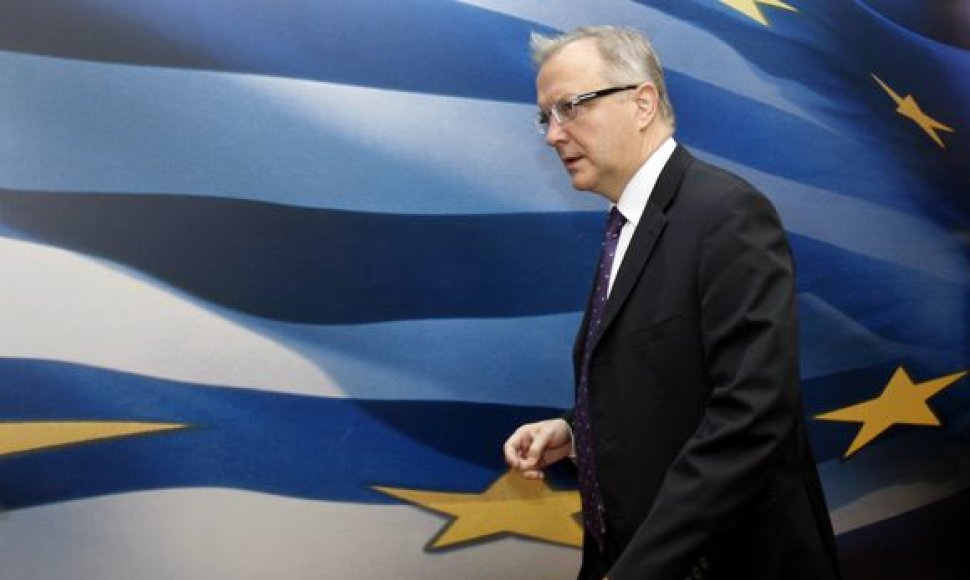Olli Rehn believes, however, that it is necessary to find out first whether the country meets the criteria of euro zone membership.
“I was in Riga yesterday, Latvia, preparing for the euro in Latvia on the first of January 2014… Maybe next year we will have the same conference in Vilnius, of course, that would depend whether Lithuania will be able to meet the conditions for acceding to the euro zone. I am a supporter of the Baltic States’ integration to the euro zone. I know that Estonia, Latvia and Lithuania have recovered well from the crisis,” the European Commission’s Vice-President said at a news conference after the meeting of the Eurogroup in Vilnius on Friday.
Europe is recovering
The European Union (EU) is recovering faster than expected, yet it is premature to state that the crisis has ended, Rehn has said.
"The second quarter GDP figures were somewhat better than expected..., a gradual recovery is taking route in Europe, which we expect to grow firmer in the coming months, stand on a more solid footing and pick up speed in the course of next year. But certainly this is no time to shout that the crisis is over,” Rehn said at the news conference.
It was not yet possible to state that the crisis had ended, he said warning against complacency.
“That is clearly premature, and I see that that the key risk to this recovery is complacency; complacency in policy and complacency in terms of reforms. Complacency is a luxury that we simply cannot afford,” the Commissioner said.
The level of unemployment, which was still high, as well as difficulties in access to credit faced by small and mid-scale businesses called for continued reforms, Rehn said.
“That’s why it is essential to stay the course of reform and, in some cases, step up the reform of our economies for sustainable growth and job creation,” he added.












